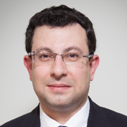Past Coverage of EULAR 2016Past Coverage of EULAR 2016 Return To RheumReports Home

Getting Better at the Attribution of Neuropsychiatric Events in SLE
June 11 2016 12:07 PM ET — via RheumReports
The attribution of new neuropsychiatric (NP) event is very challenging and important in the management of lupus. A new algorithm to determine the attribution of NP events to SLE or other causes was developed in 2015 by an Italian group of researchers.
Bortoluzzi et al aimed to evaluate the performance of the new algorithm in a new International Multicentre cohort of patients with NP event(s).
Patients were recruited from Halifax (Nova Scotia, Canada), Campinas (Brazil) and Heraklion (Greece).
Four factors were considered for the evaluation of each NP:
-
The time of onset of NP event
-
The presence of confounding non-SLE factors
-
The presence of favouring factors (defined in the glossary for the ACR 1999 case definition)
-
The type of NP event (major or minor as proposed by Ainala et al [Neurology 2001])
In this validation (construct validity) study, the performance of the new algorithm was compared to the attribution determined by the clinical judgement (gold standard). Overall, 336 NP events that occurred in 231 SLE patients were analyzed.
The area under the curve (AUC) was 0.89 for NP events attributed to SLE with a sensitivity of 87% and specificity of 83%. The positive predictive value was 77.9% and the negative predictive value was 90.6%.
Bottom line, the new algorithm for attribution of NP events to lupus correlated with the judgement of physicians for the NP event. This analysis conformed the validity of this algorithm.
Share This Report
About the Author

Dr. Touma is a clinical epidemiologist and an Assistant Professor of Medicine in the Division of Rheumatology at the University of Toronto, and Staff Physician and Clinician Scientist in the Division of Rheumatology, Toronto Western Hospital and Mount Sinai Hospital. In 2012 he completed his PhD in Clinical Epidemiology and subsequently completed one year of post-doctoral work in Measurement in Clinical Research.
View Full Bio




